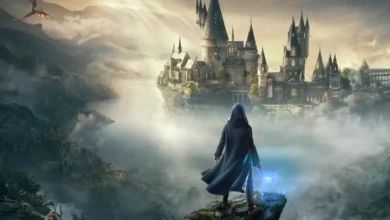Oppenheimer: Cillian Murphy makes powerful impact in atomic epic
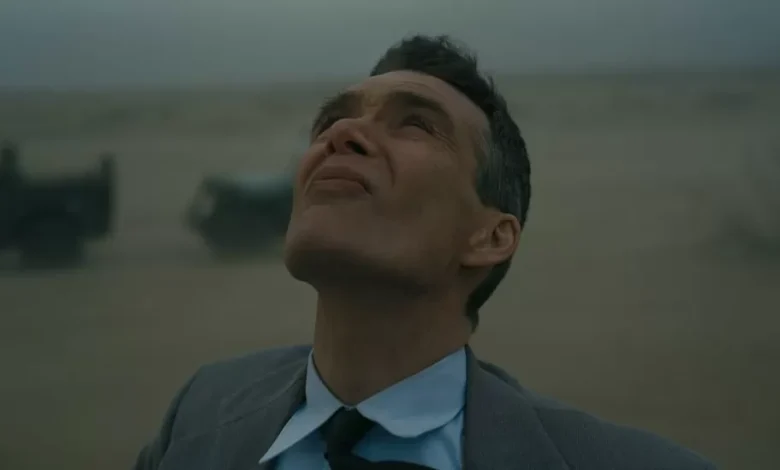
Critics have given positive reviews to Oppenheimer, Christopher Nolan’s sweeping new biographical thriller about the “father of the atomic bomb”.
The film features an all-star ensemble cast led by Cillian Murphy as the US physicist, J Robert Oppenheimer.
The Independent called the “clever, imaginative” film Nolan “at his best”, while the Telegraph said actor Murphy “dazzles as the destroyer of worlds”.
The Guardian’s Peter Bradshaw deemed the movie “flawed, but extraordinary”.
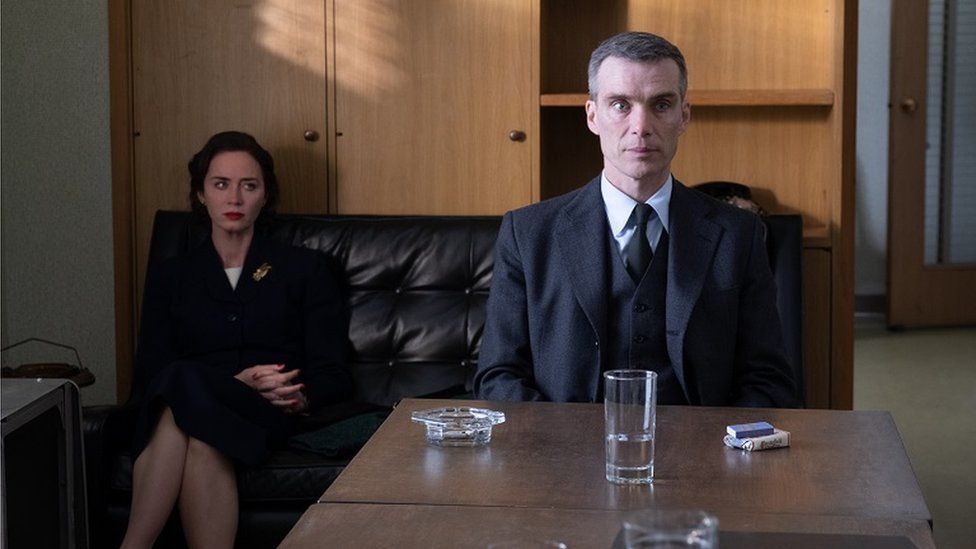
Inspired by the Pulitzer Prize-winning book American Prometheus: The Triumph And Tragedy Of J Robert Oppenheimer, the film tells the story of the enigmatic Manhattan Project scientist, who had a leading role in developing the atomic bomb, changing the course of World War II.
He “gave us the power to destroy ourselves and that had never happened before”, director Nolan told BBC Culture editor Katie Razzall.
Commissioned by the US Government, who saw themselves in a nuclear race with the Nazis, in 1945 scientists in New Mexico detonated a test bomb, codenamed Trinity.
Their invention was later used, controversially, to end the war, when an atomic bomb was dropped on the Japanese cities of Hiroshima and Nagasaki to devastating effect.
The Telegraph’s Robbie Collin awarded five stars, saying: “Nolan’s portrait of the father of the nuclear bomb is a triumph, like witnessing history itself being split open.”
“Oppenheimer is a film that works simultaneously on the most intimate and cosmic scales,” he wrote.
“It’s at once a speeding rollercoaster and a skin-tingling spiritual portrait; an often, classically-minded period piece that only Nolan could have made, and only now, after a quarter-century’s run-up.”
He added: “Playing Oppenheimer from his early 20s to late 50s, the 47-year-old Murphy gives the performance of his life, imbuing Oppenheimer’s body with an enthralling nervous eroticism and his voice with a noirish musicality that reminds you of [Humphrey] Bogart.”
In another five-star review, Empire Magazine’s Dan Jolin called Murphy “compelling throughout”.
“A masterfully constructed character study from a great director operating on a whole new level. A film that you don’t merely watch, but must reckon with.”
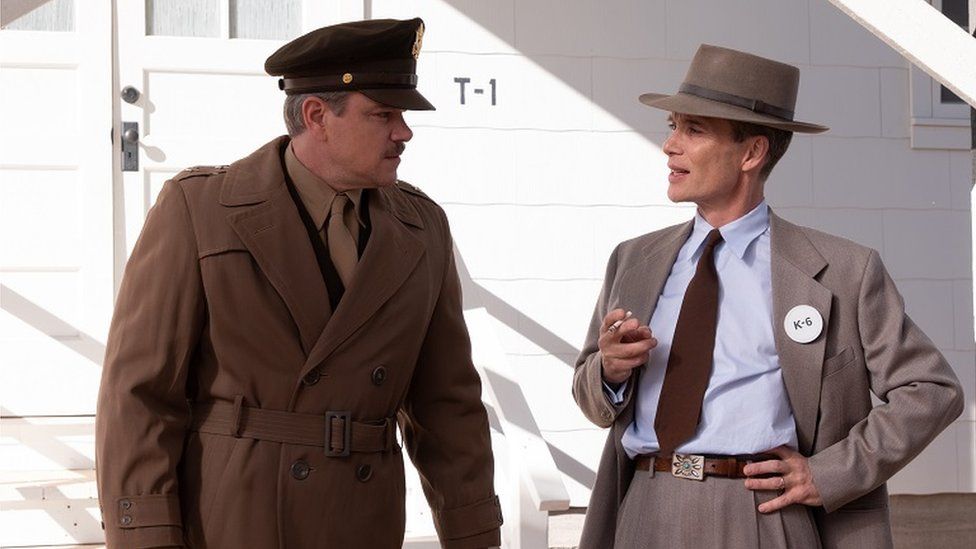
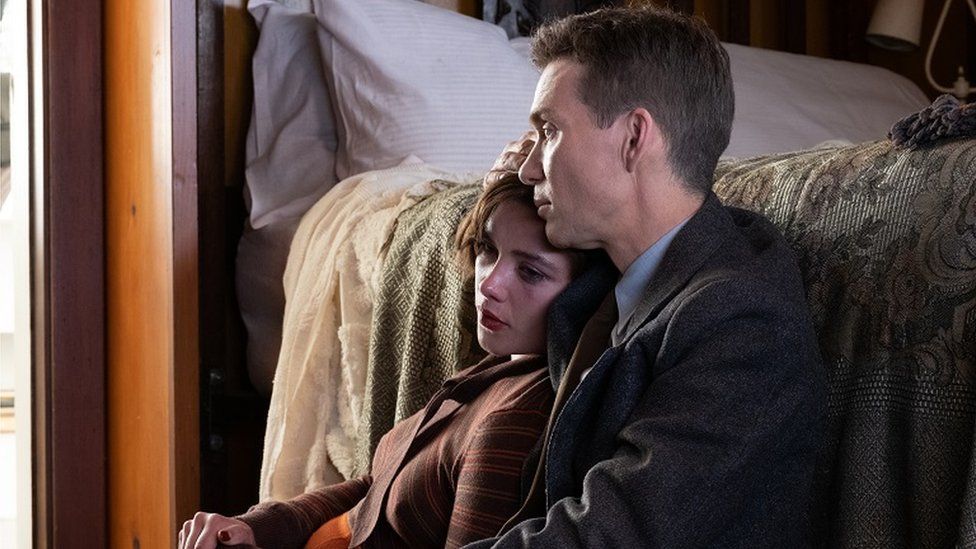
In a four-star review in the Guardian, Bradshaw said the film “captures the most agonising of success stories”.
“This is the big bang, and no one could have made it bigger or more overwhelming than Nolan,” he wrote.
“He does this without simply turning it into an action stunt – although this movie, for all its audacity and ambition, never quite solves the problem of its own obtuseness: filling the drama at such length with the torment of genius-functionary Oppenheimer at the expense of showing the Japanese experience and the people of Hiroshima and Nagasaki.”
He described Murphy as “an eerily close lookalike for Oppenheimer… very good at capturing his sense of solitude and emotional imprisonment”.
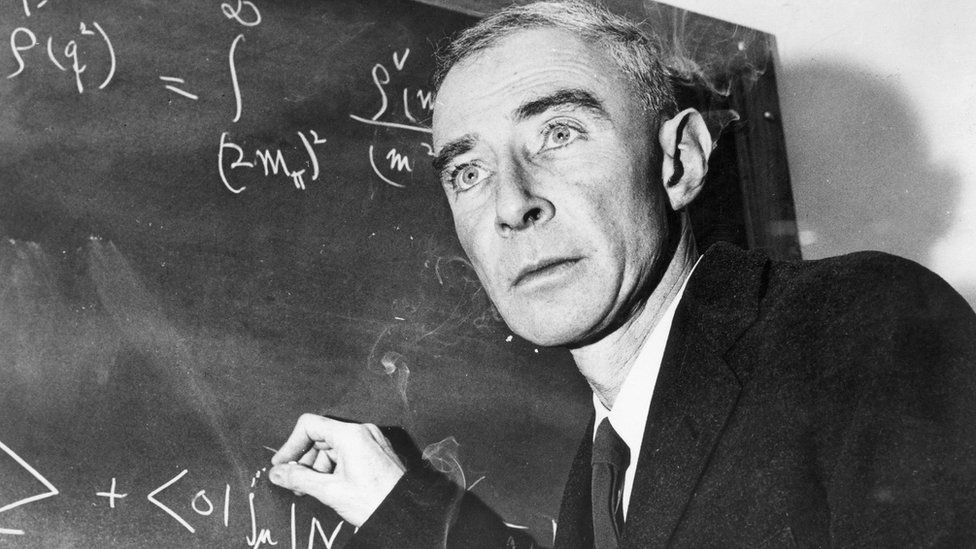
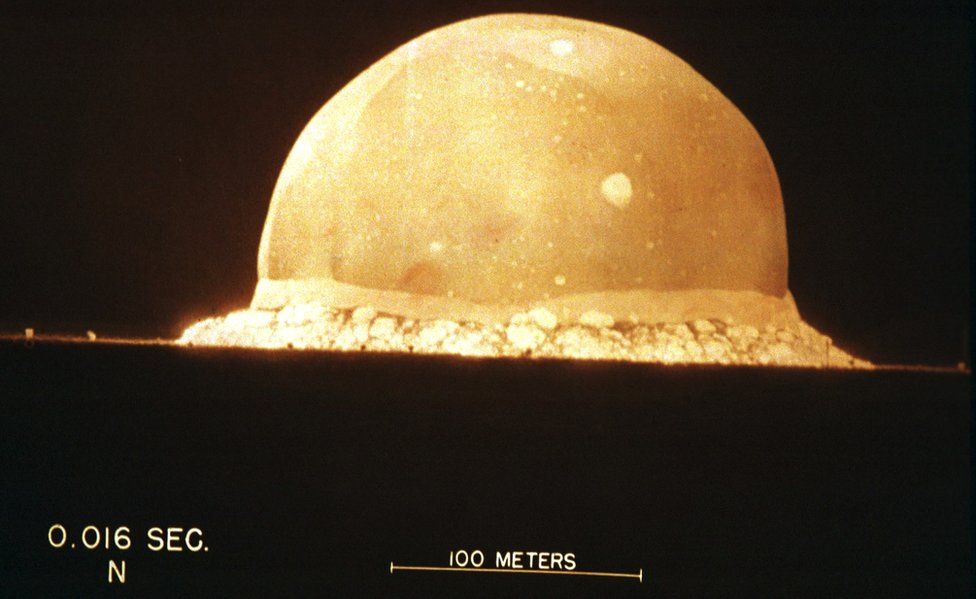
Writing in the Times, critic Ed Potton, who also awarded the film four stars, hailed Murphy’s performance as “explosive in a breathtaking movie”.
The Evening Standard’s Charlotte Sullivan wrote that the “dark, immersive epic gives Cillian Murphy the role of his career”.
Speaking ahead of the film’s release, the Irish star told journalists the role had taken “a toll” on him “but in a brilliant way”.
“It was the biggest, most exhilarating challenge,” he said.
Co-star Matt Damon revealed he had told his wife he would take a break from acting, unless “Chris Nolan called”.
Nolan is best known for his Dark Knight trilogy, as well as films including Inception, Dunkirk and Tenet. He makes history with Oppenheimer – which also features Emily Blunt, Florence Pugh and Robert Downey Jr – as the first film with sequences shot on black and white IMAX film.
The Hollywood Reporter’s David Rooney called the movie a “scorching depiction of America’s ability to create and destroy its heroes.”
While the four-act structure “asks a lot of the film’s audience”, he commented “our patience and concentration are amply rewarded”.
Handing the film four stars, the Independent’s Clarisse Loughrey called Oppenheimer “Nolan’s best and most revealing work”.
“It’s a profoundly unnerving story told with a traditionalist’s eye towards craftsmanship and muscular, cinematic imagination.”
She praised its non-linear structure – a common feature of Nolan films – and its “beautifully lensed” cinematography, but added: “It’s a little too conscious of itself, and the ways cinema crafts its own reality.”
Rolling Stone reviewer David Fear said the movie is “big, loud, and a must-see”, describing it as “thrilling and wonky, brilliant and overstuffed, too much and not enough”.
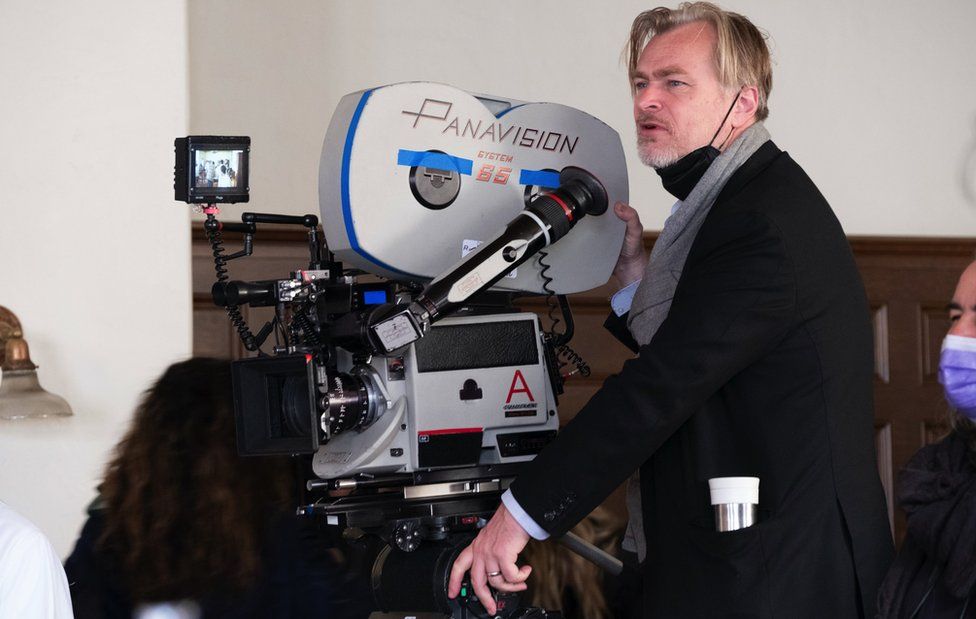
Speaking after the New York premiere, fellow filmmaker Paul Schrader, who wrote the Martin Scorsese-directed Taxi Driver, hailed Oppenheimer as “the best, most important film of this century”.
“If you see one film in cinemas this year it should be Oppenheimer”, Schrader wrote on Facebook. “I’m not a Nolan groupie but this one blows the door off the hinges.”




